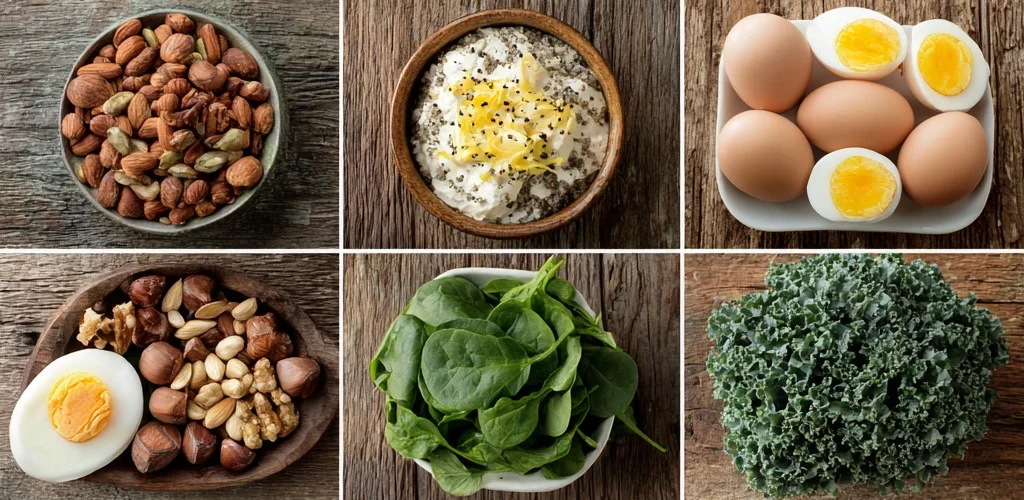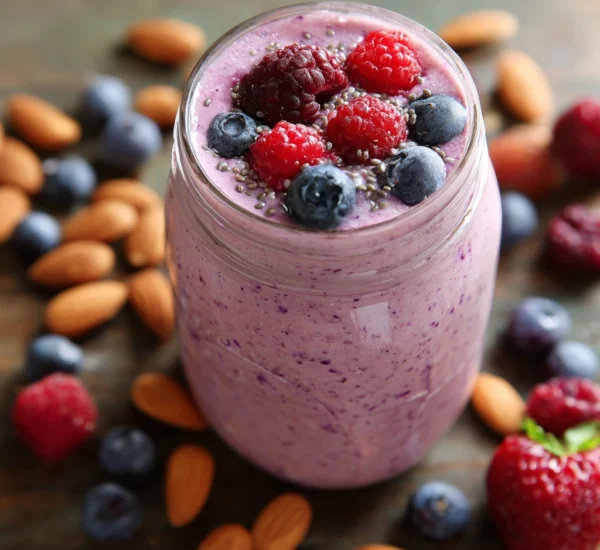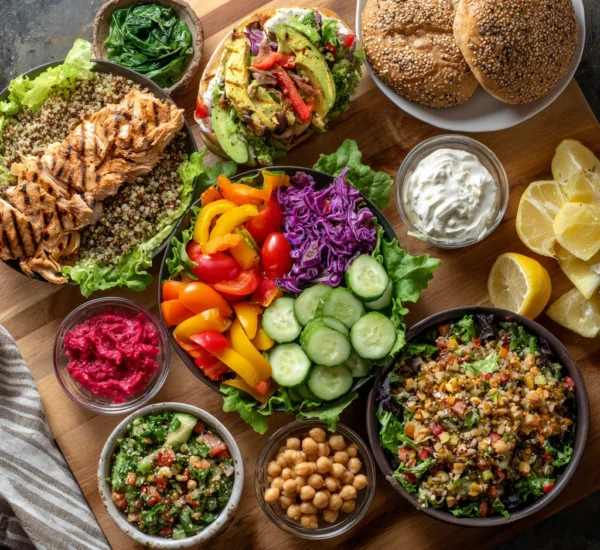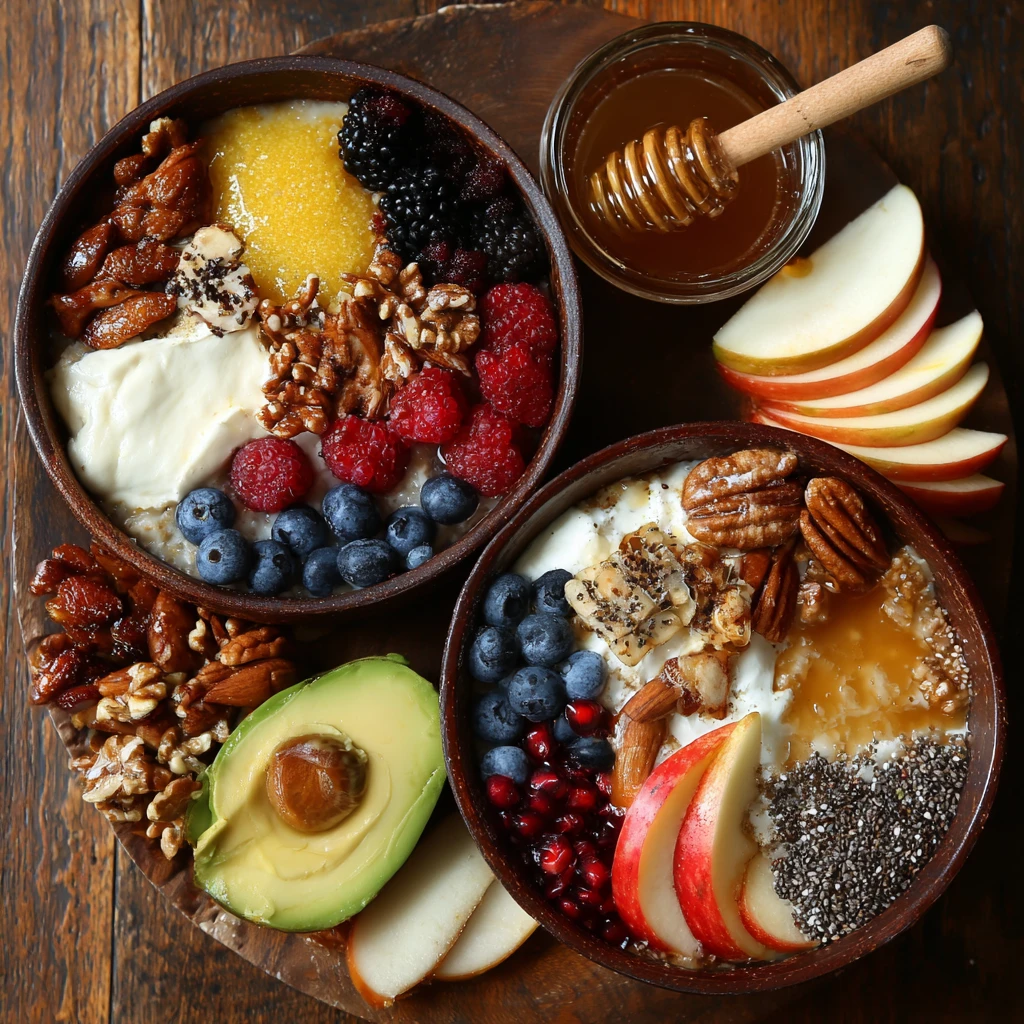Best Foods for Steady Energy All Day
Feeling sluggish halfway through the day? Tired of energy crashes after a sugary snack? Achieving sustained energy throughout the day doesn’t require drastic measures. It all comes down to choosing the right foods that provide a slow, steady release of fuel for your body and brain. This guide will explore the best foods to incorporate into your diet for all-day vitality.
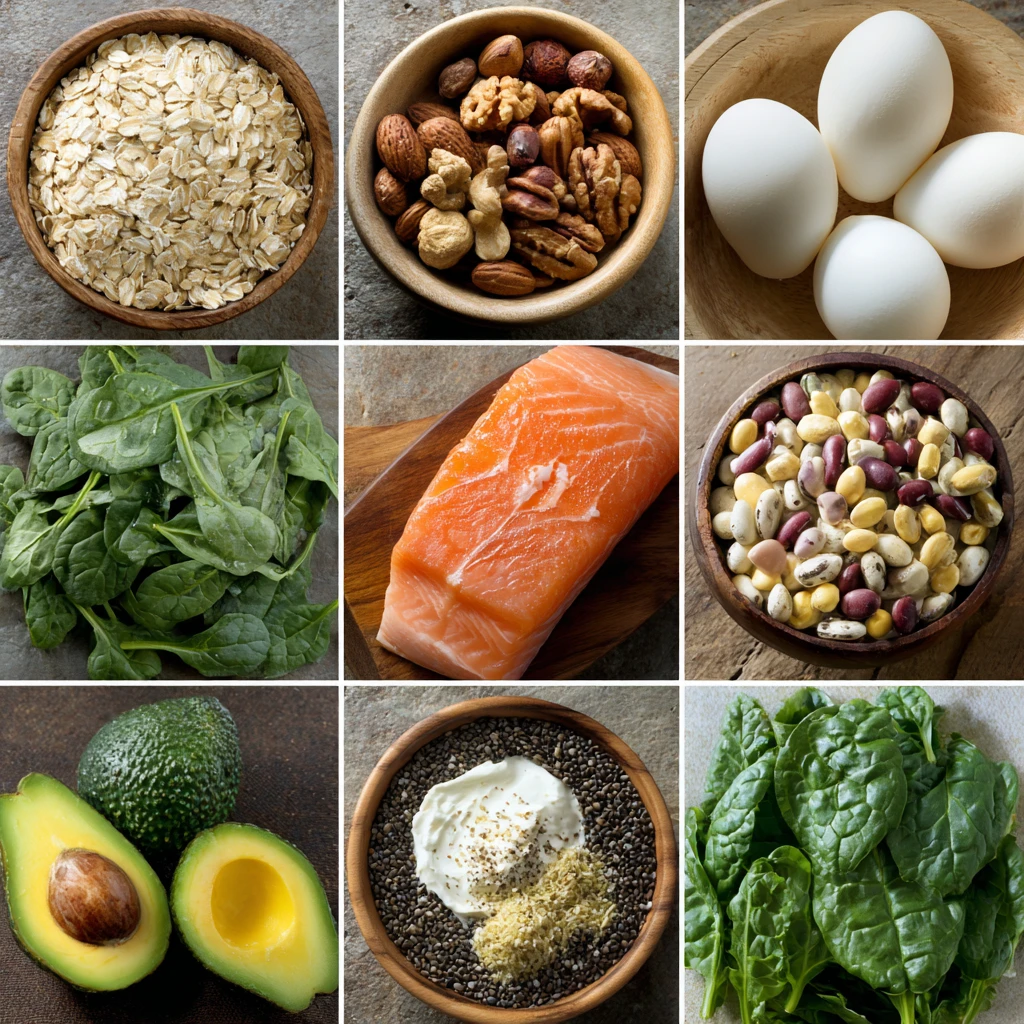
Understanding Energy and Food
Before diving into specific foods, it’s essential to understand how food impacts energy levels. The energy we get from food is measured in calories, which our bodies convert into fuel. However, not all calories are created equal. Foods high in processed sugars and refined carbohydrates provide a quick burst of energy followed by a rapid decline, leading to that dreaded afternoon slump. Conversely, foods rich in complex carbohydrates, protein, and healthy fats offer a more sustained energy release.
The Role of Macronutrients:
- Complex Carbohydrates: These carbohydrates, found in whole grains, fruits, and vegetables, take longer to digest than simple sugars. This slower digestion process results in a gradual release of glucose into the bloodstream, providing a steady source of energy.
- Protein: Protein is essential for building and repairing tissues. It also plays a role in stabilizing blood sugar levels. Protein-rich foods take longer to digest, contributing to sustained energy and feelings of fullness.
- Healthy Fats: Healthy fats, such as those found in avocados, nuts, and olive oil, are a concentrated source of energy. They also help regulate hormones and support brain function. Like protein, fats contribute to satiety and a slower release of energy.
Top Foods for Sustained Energy
Now that we’ve covered the basics, let’s explore some of the best foods you can incorporate into your diet to maintain consistent energy levels throughout the day.
1. Oatmeal:
Oatmeal is a breakfast staple for a reason. It’s packed with complex carbohydrates and fiber, which slow down the absorption of sugar into the bloodstream. This prevents energy spikes and crashes. Choose steel-cut or rolled oats over instant varieties, as they are less processed and have a lower glycemic index. Add berries, nuts, and seeds for extra nutrients and flavor.
2. Nuts and Seeds:
Nuts and seeds are excellent sources of healthy fats, protein, and fiber. They provide a sustained release of energy and can help you feel full and satisfied. Almonds, walnuts, chia seeds, flaxseeds, and pumpkin seeds are all great options. Keep a handful on hand for a quick and convenient snack.
3. Greek Yogurt:
Greek yogurt is a protein powerhouse. It also contains probiotics, which are beneficial for gut health. Choose plain, unsweetened Greek yogurt to avoid added sugars. Add fruit, nuts, or a drizzle of honey for flavor.
4. Avocados:
Avocados are rich in healthy monounsaturated fats, fiber, and various vitamins and minerals. These fats provide a sustained source of energy and help keep you feeling full. Add avocado to salads, sandwiches, or smoothies.
5. Eggs:
Eggs are a complete protein source, meaning they contain all nine essential amino acids. Protein is crucial for energy production and muscle repair. Start your day with scrambled eggs, an omelet, or hard-boiled eggs for a boost of sustained energy.
6. Sweet Potatoes:
Sweet potatoes are a complex carbohydrate source that is also rich in fiber and vitamins. They have a lower glycemic index than white potatoes, meaning they don’t cause as rapid a spike in blood sugar. Bake, roast, or mash sweet potatoes as a side dish or snack.
7. Beans and Legumes:
Beans and legumes, such as lentils, chickpeas, and black beans, are excellent sources of protein, fiber, and complex carbohydrates. They provide a slow and steady release of energy and can help you feel full for hours. Add beans and legumes to soups, salads, or stews.
8. Fatty Fish:
Fatty fish like salmon, tuna, and mackerel are rich in omega-3 fatty acids, which are essential for brain health and energy production. Omega-3s also have anti-inflammatory properties. Aim to include fatty fish in your diet at least twice a week.
9. Quinoa:
Quinoa is a complete protein source and a good source of fiber and iron. It’s a versatile grain that can be used in a variety of dishes, from salads to side dishes. Quinoa provides a sustained release of energy and helps keep you feeling full.
10. Leafy Green Vegetables:
Leafy greens like spinach, kale, and collard greens are packed with vitamins, minerals, and antioxidants. They also contain fiber, which helps regulate blood sugar levels. Add leafy greens to salads, smoothies, or stir-fries.
Meal Planning for All-Day Energy
Creating a meal plan that incorporates these energy-boosting foods can make a significant difference in your daily energy levels. Here are some tips for meal planning:
- Start with a balanced breakfast: Include protein, complex carbohydrates, and healthy fats. Examples include oatmeal with nuts and berries, Greek yogurt with fruit, or scrambled eggs with whole-wheat toast.
- Pack healthy snacks: Keep healthy snacks on hand to prevent energy dips between meals. Good options include nuts, seeds, Greek yogurt, fruit, or hard-boiled eggs.
- Focus on whole, unprocessed foods: Limit your intake of processed foods, sugary drinks, and refined carbohydrates, as these can lead to energy crashes.
- Stay hydrated: Dehydration can lead to fatigue, so make sure you're drinking plenty of water throughout the day.
- Eat regular meals: Skipping meals can cause blood sugar levels to drop, leading to fatigue. Aim to eat three balanced meals and two to three healthy snacks per day.
Sample Meal Plan:
- Breakfast: Oatmeal with berries, nuts, and a scoop of protein powder.
- Mid-morning snack: A handful of almonds and an apple.
- Lunch: Salad with grilled chicken or fish, avocado, and a variety of vegetables.
- Afternoon snack: Greek yogurt with a drizzle of honey.
- Dinner: Baked salmon with roasted sweet potatoes and steamed broccoli.
Lifestyle Factors Affecting Energy
While food plays a crucial role in maintaining energy levels, other lifestyle factors also contribute. It’s essential to address these factors to optimize your energy throughout the day.
1. Sleep:
Getting enough sleep is crucial for energy production. Aim for 7-8 hours of quality sleep each night. Establish a regular sleep schedule and create a relaxing bedtime routine to improve sleep quality.
2. Exercise:
Regular physical activity can boost energy levels. Aim for at least 30 minutes of moderate-intensity exercise most days of the week.
3. Stress Management:
Chronic stress can drain your energy levels. Practice stress-reducing techniques such as yoga, meditation, or deep breathing exercises.
4. Hydration:
Dehydration can lead to fatigue, so make sure you’re drinking plenty of water throughout the day. Aim for at least eight glasses of water per day.
5. Limit Caffeine and Alcohol:
While caffeine can provide a temporary energy boost, it can also lead to energy crashes. Limit your intake of caffeine and avoid drinking it close to bedtime. Alcohol can also disrupt sleep patterns and lead to fatigue.
Quick Tips for an Energy Boost
Sometimes, despite your best efforts, you may still experience an energy slump. Here are some quick tips for a natural energy boost:
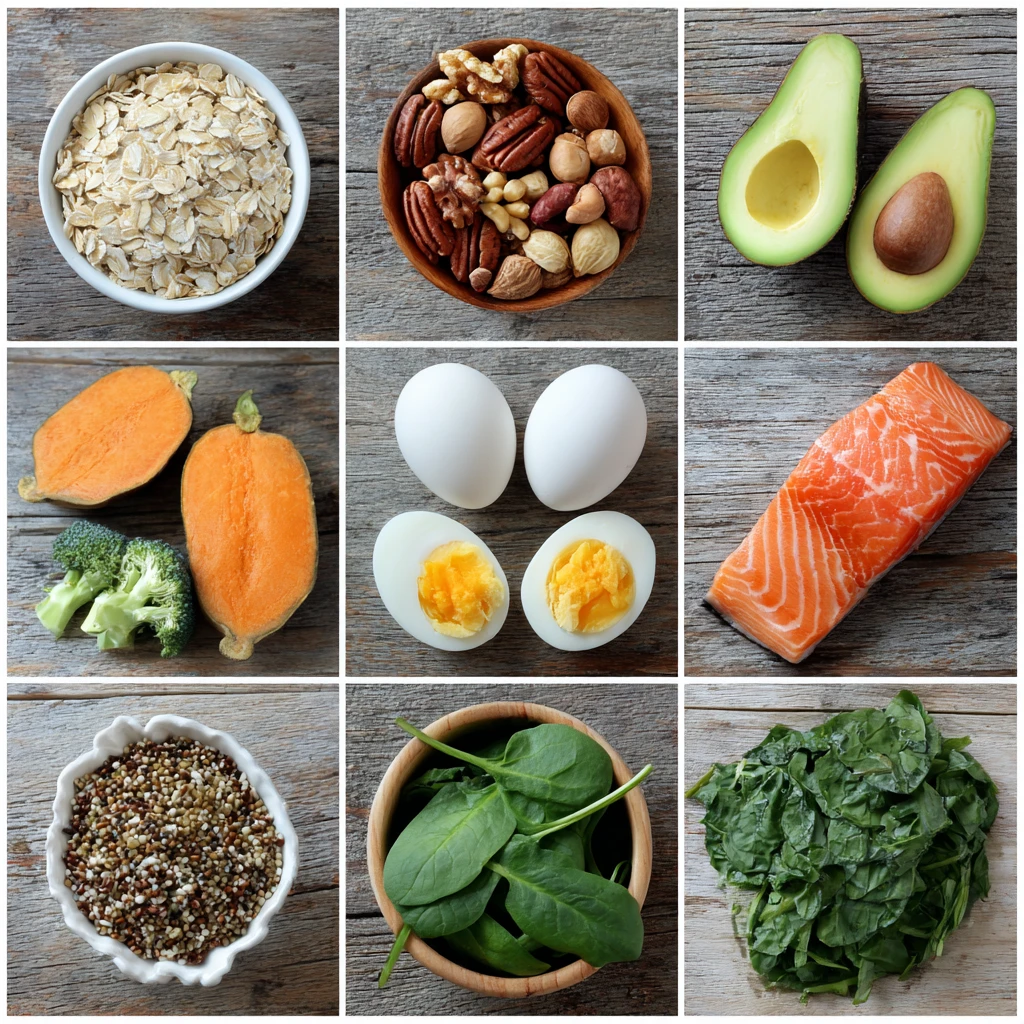
- Take a walk: A short walk can increase blood flow and boost energy levels.
- Drink water: Dehydration can cause fatigue, so drink a glass of water.
- Stretch: Stretching can improve circulation and reduce muscle tension.
- Listen to music: Uplifting music can boost your mood and energy levels.
- Get some sunlight: Sunlight can help regulate your circadian rhythm and boost energy levels.
Frequently Asked Questions (FAQ)
What are the best foods to eat for breakfast to have energy all day?
Oatmeal with nuts and berries, Greek yogurt with fruit, or scrambled eggs with whole-wheat toast are all excellent breakfast options that provide sustained energy.
How can I avoid energy crashes after eating?
Avoid sugary drinks, processed foods, and refined carbohydrates, which can lead to rapid spikes and crashes in blood sugar. Focus on whole, unprocessed foods that provide a slow and steady release of energy.
Are there any specific vitamins or minerals that can help with energy levels?
Iron, vitamin B12, and vitamin D are essential for energy production. If you suspect you may be deficient in any of these nutrients, talk to your doctor about getting tested.
Is it better to eat small, frequent meals or three larger meals for energy?
Many people find that eating smaller, more frequent meals helps them maintain more stable blood sugar levels and consistent energy throughout the day. However, the best approach depends on individual preferences and needs.
What role does hydration play in energy levels?
Dehydration can lead to fatigue, so it’s essential to stay hydrated throughout the day. Aim to drink at least eight glasses of water per day.
Ingredients
Oatmeal, nuts, seeds, Greek yogurt, avocados, eggs, sweet potatoes, beans, legumes, fatty fish (salmon, tuna, mackerel), quinoa, leafy green vegetables (spinach, kale, collard greens).
